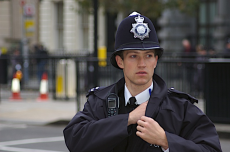
The police have been working in Britain for around 2 centuries, and it’s hard to believe that they are such a new invention, since they have become a key part of everyday life. Policing became compulsory across the whole of the UK in 1856 with the County and Borough Act, but since this piece of legislation, the police as an institution have changed rather dramatically, and it is important to consider the place of the police in our modern society and what they represent. By understanding the role that police play, we can ensure that they are doing the best job possible.
Collier focussed on examining the purpose of the police force, considering that there were 5 main reasons for having police. To enforce and support laws, to investigate crimes and apprehend offenders, to prevent potential crimes, to ensure community stability, and to help the community as best they can in other problems. Some would argue that in recent years, the police have moved to focussing more centrally on the first two of these aims (enforcing laws and investigating crimes), and are less good now at acting as friendly and helpful to the community. Perhaps the community-police relationship would be strengthened if they were to focus more on these aims.
This relates to one model of policing that has become popular in recent years, known as community policing. This model attempts to foster a sense of community within neighbourhoods and to improve police relationships with the community. To achieve this aim, it focusses on redistributing traditional police resources to individual areas as opposed to just using one over-arching control system. This is known as decentralisation. It also involves more interaction between police and the community to not only reduce crime itself, but also to reduce the fear of crime. It believes that we should focus on stopping the actual causes of crime, such as social disorganisation, rather than just aiming for short-term solutions like catching individual offenders.
Another model of policing that is currently gaining popularity is known as problem-oriented policing. This argues that traditional policing is reactive, only focussing on crimes once they arrive, and suggests that we should be more proactive in attacking crime, achieving greater speed and efficiency. To do this, police must try and quickly recognise relationships between different incidents, and understand what conditions are giving rise to the problems. From here they can focus police resources to achieve greater efficiency. This may involve working out which areas have the most cases of crime and then placing more police within these areas so that they can easily respond to crimes when they do arise.
The final model of policing that I’ll look at in this article is Intelligence-Led Policing. This model focusses on collecting intelligence and using this as a tool to fight crime, meaning police can again achieve high efficiency. It may include targeting offenders, through overt or covert means, management of crime hotspots (areas where most crime is occurring), investigating links between crimes, and applying preventative measures based on this intelligence. This method is similar to the problem-oriented policing model discussed above, but has an increased focus on the collection of intelligence by any means possible and on individual problems, rather than large-scale social disorganisation.
The problem with having three such clear-cut models of how the police should work is that it is hard to achieve them all at once. Perhaps the next step in policing is to try and integrate these models together, so that we can attack crime from various methods at once, achieving the positives of all of the different methods. It may be some time before we can fully understand the best route to stopping crime, but only through trial of these different methods can we find out what works and what does not. Perhaps the most important thing is to remember that the police try to protect us to the best of their ability, and that though there will sometimes be errors in police judgement, these are required in order to improve future policing.
Image from: http://upload.wikimedia.org/wikipedia/commons/e/ee/British_Policeman.jpg

0 Comment:
Be the first one to comment on this article.